Poppies, Beautiful Poppies
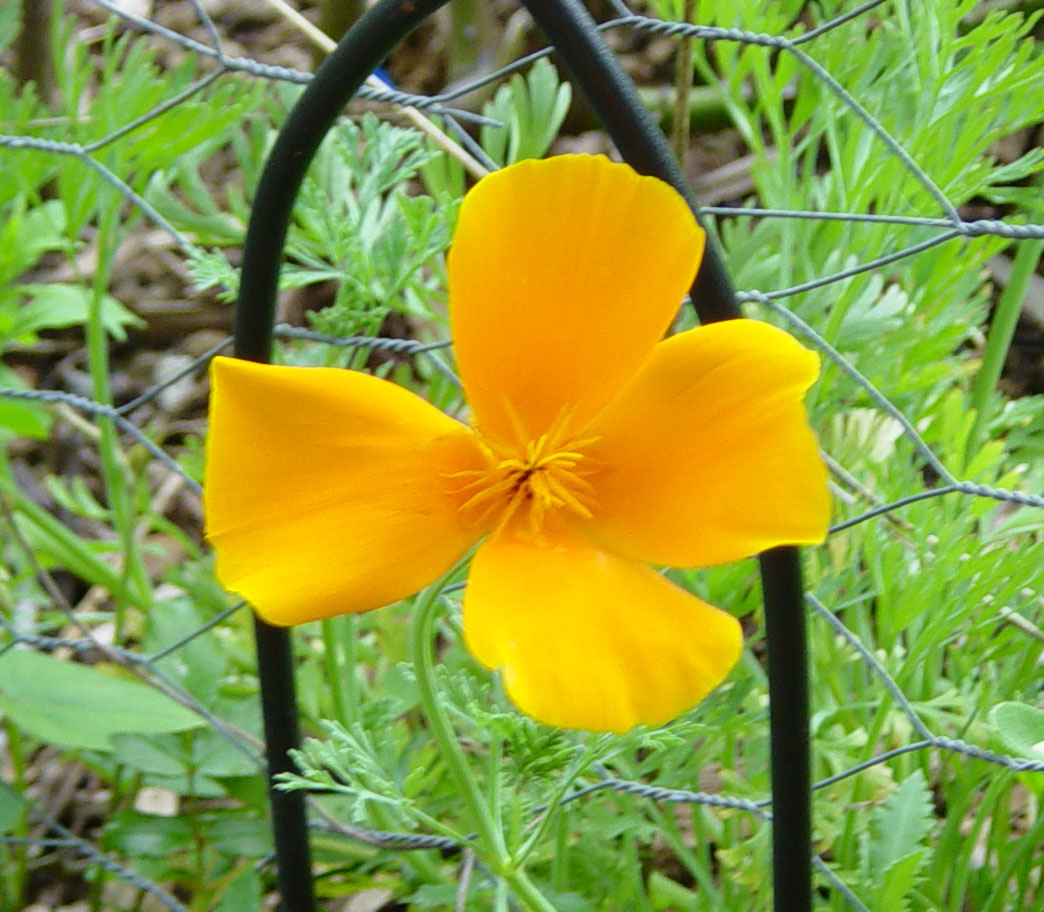 My
all-time favorite movie is the Wizard of Oz.
When Dorothy and her gang ran through the poppy field towards
the Emerald City, and that catchy tune accompanied their jaunt – I
was captured – by Poppies, beautiful Poppies.
My
all-time favorite movie is the Wizard of Oz.
When Dorothy and her gang ran through the poppy field towards
the Emerald City, and that catchy tune accompanied their jaunt – I
was captured – by Poppies, beautiful Poppies.
The lovely little orange California poppy, Eschscholzia
californica, is a perennial poppy that grows well here in
Central Texas and the entire plant can be used as a sedative. This
poppy does contain flavone glycocides but is not considered
narcotic. The California poppy can be made into a tincture and
used to relieve pain, as a sedative for insomnia, to help with
anxiety and excitability, (useful for ADHD), to allay diarrhea and
to inhibit the cough reflex.
Many herbalists agree that California poppy, known as “nightcap” in
the United States, can be used safely and gently as a sedative for
sleeplessness, stress and tension and is often used for children. It
blends well with other sedative herbs like Passionflower,
Passiflora incarnata, Lemon Balm, Melissa officinalis and
Valerian, Valeriana officinalis. Remember when using an
herb for the first time to use just a little to test for any
allergic or negative reactions.
The tiny seeds of California Poppy can be planted in November
for a gorgeous early spring bloom. You can also, brew a sedative tea
from the poppy seeds but I like to use the entire plant and make a
tincture from the flowers, leaves and roots.
An effective tincture used by both adults and children:
http://www.ezherbs.net/tinctures.html#poppy0
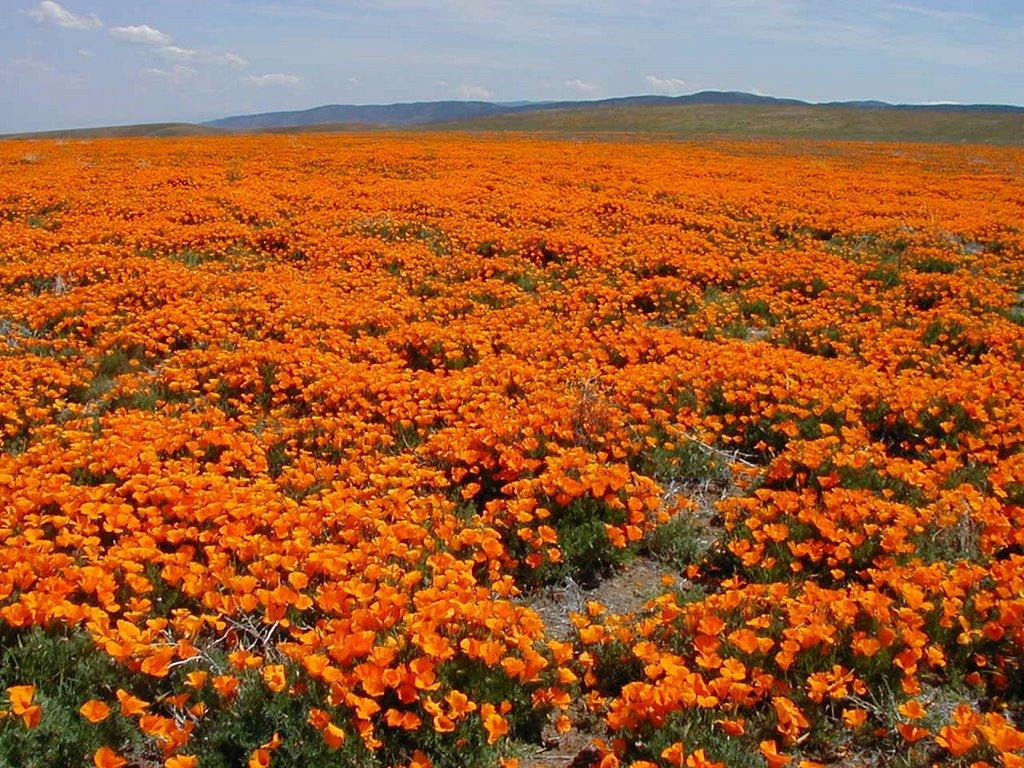 If
you ever get an opportunity to visit the high desert areas of
Southern California in the early springtime, you will be delighted
to see hills full of bright orange flowers. When I lived in Southern
California I would load up the kids in the car and visit these
wildflowers every year. The hillsides are now known as the
Antelope Valley California Poppy Reserve. How lucky we are to be
able to grow them in our gardens in Texas
If
you ever get an opportunity to visit the high desert areas of
Southern California in the early springtime, you will be delighted
to see hills full of bright orange flowers. When I lived in Southern
California I would load up the kids in the car and visit these
wildflowers every year. The hillsides are now known as the
Antelope Valley California Poppy Reserve. How lucky we are to be
able to grow them in our gardens in Texas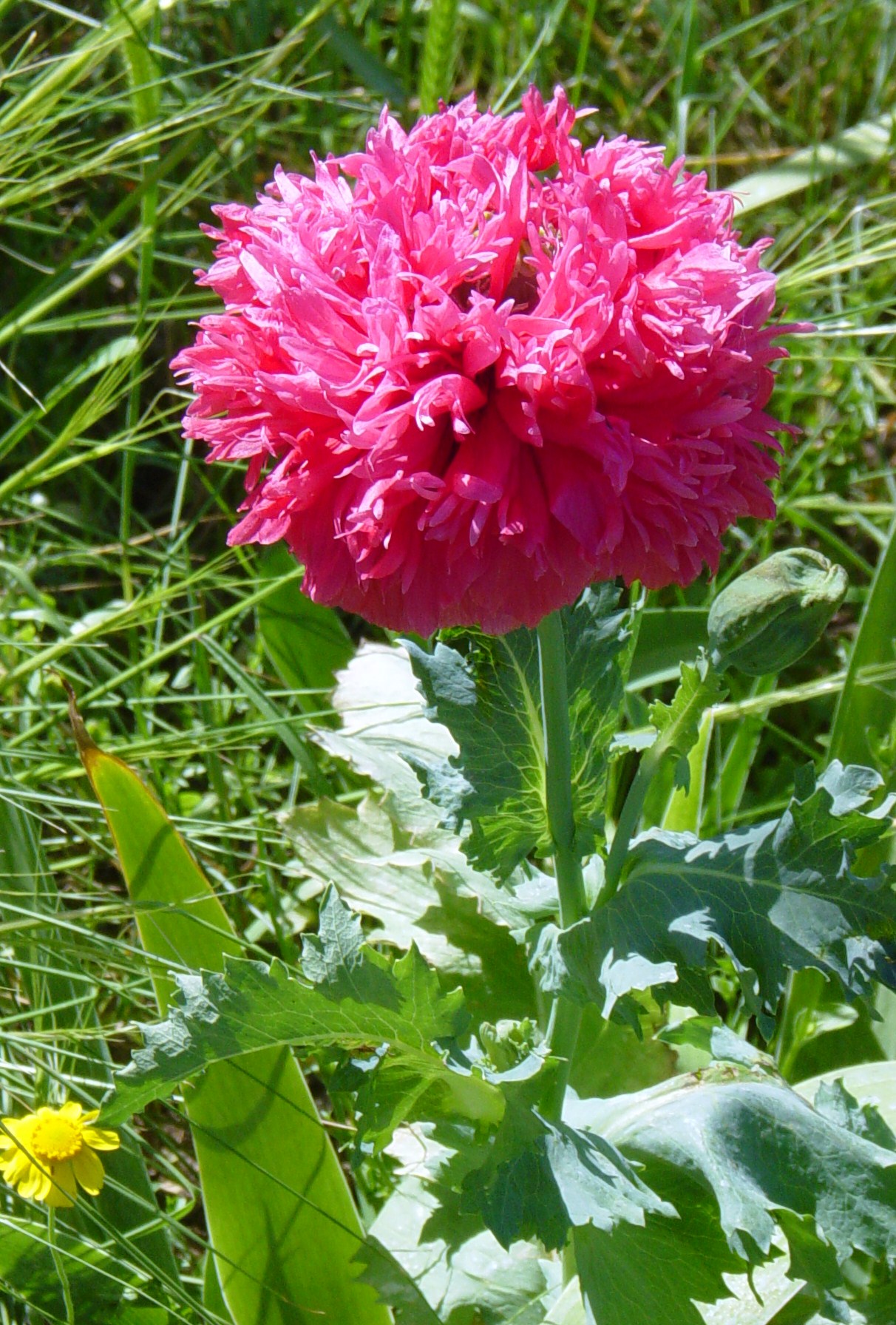 ?
?
Other Poppies that grow well here and are a beautiful addition to
our spring gardens are red oriental poppies,
Papaver orientale and my
favorite, pom, pom or “Dorothy Poppies”,
Papaver
somniferum
arriving in my garden as a gift from my dear friend and gardening
mentor, Dorothy.
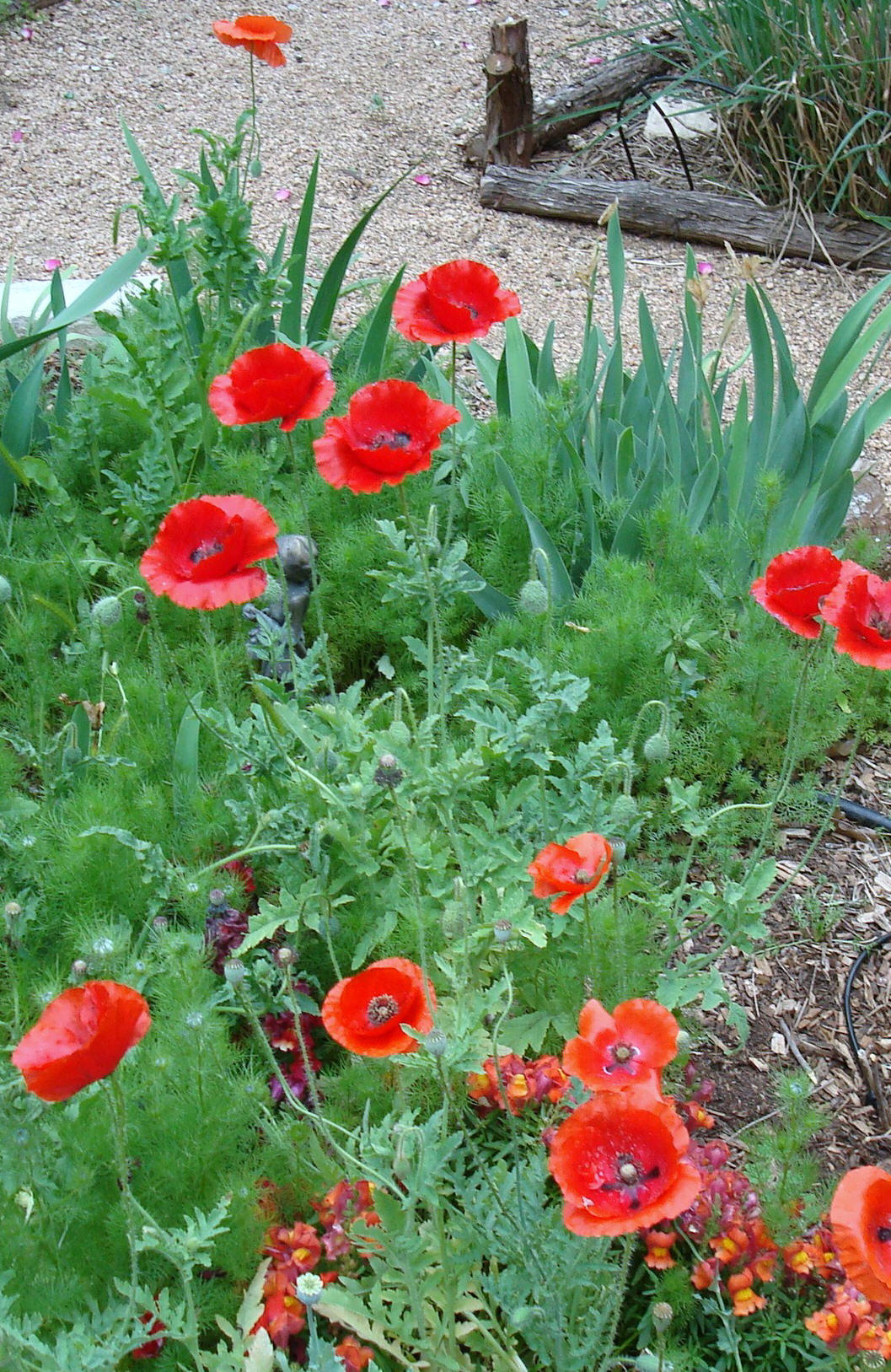 The
red poppies seem to be the most prolific growers here. The Dorothy
poppy is a full double or triple petal, a gorgeous rosy pink and the
most incredible, sweet, luscious flower. The Oriental poppies
including the red, white, lavender and pink all contain a number of
alkaloids with sedative and hypnotic properties. The latex, which
exudes from the stem, is a narcotic and should be avoided.
The
red poppies seem to be the most prolific growers here. The Dorothy
poppy is a full double or triple petal, a gorgeous rosy pink and the
most incredible, sweet, luscious flower. The Oriental poppies
including the red, white, lavender and pink all contain a number of
alkaloids with sedative and hypnotic properties. The latex, which
exudes from the stem, is a narcotic and should be avoided.
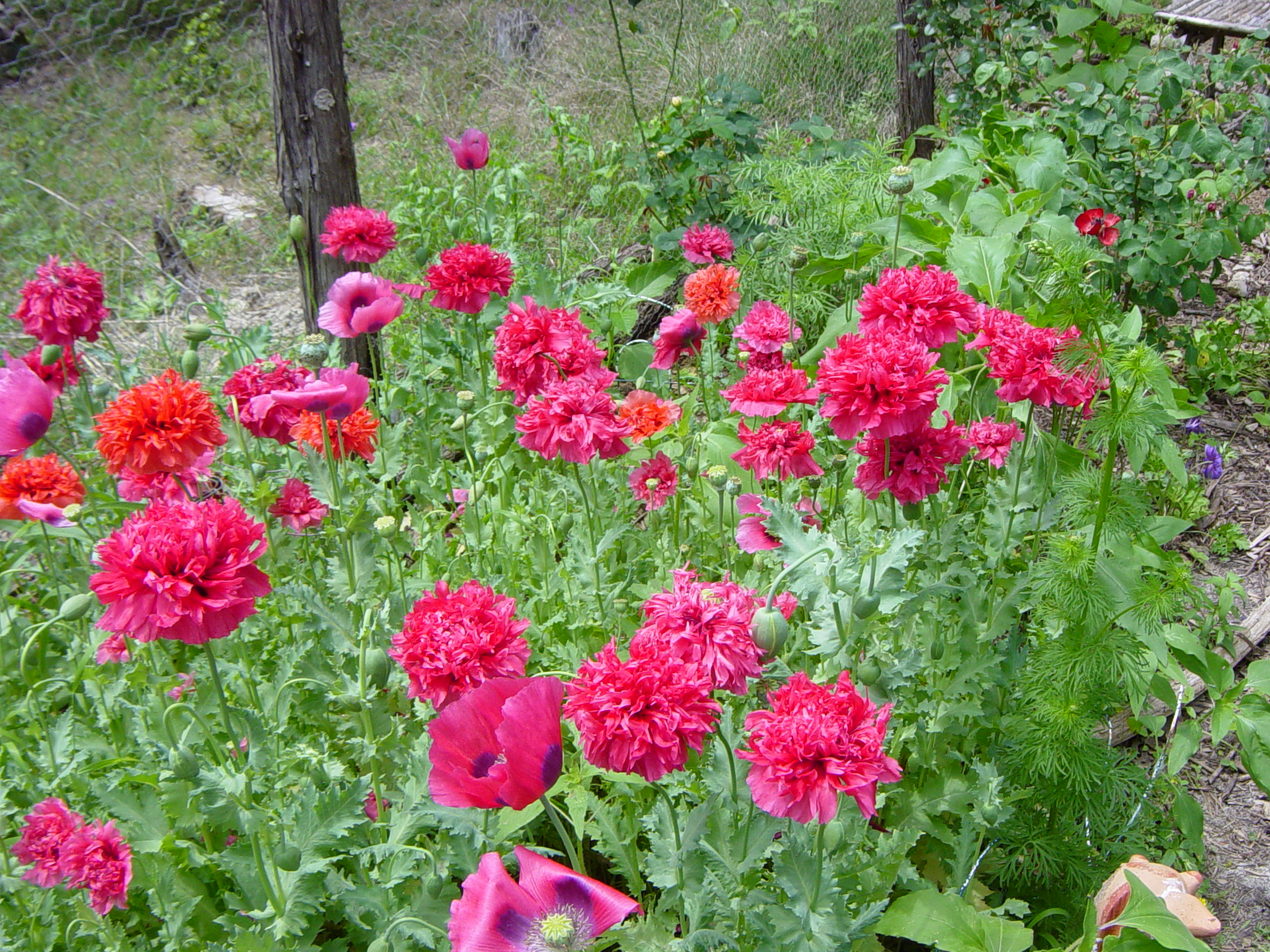 Even
though the rain still awaits us, the cooler weather has inspired me
to plant my fall vegetables, gather my wildflower seeds and bulbs
best planted in the fall and pray for a wet winter with the promise
of a delightful, abundant spring.
With just our one rain a couple of weeks ago, I have numerous
bluebonnet seeds emerging and getting ready to grow throughout the
winter.
Even
though the rain still awaits us, the cooler weather has inspired me
to plant my fall vegetables, gather my wildflower seeds and bulbs
best planted in the fall and pray for a wet winter with the promise
of a delightful, abundant spring.
With just our one rain a couple of weeks ago, I have numerous
bluebonnet seeds emerging and getting ready to grow throughout the
winter.
Many Green Blessings to all, Ellen
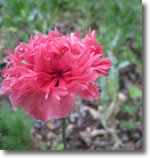
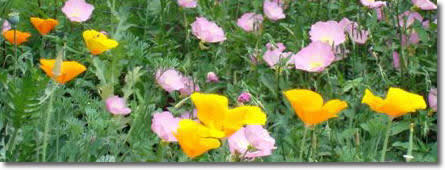
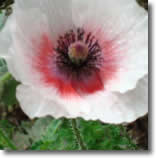
 My
all-time favorite movie is the Wizard of Oz.
My
all-time favorite movie is the Wizard of Oz. If
you ever get an opportunity to visit the high desert areas of
Southern California in the early springtime, you will be delighted
to see hills full of bright orange flowers. When I lived in Southern
California I would load up the kids in the car and visit these
wildflowers every year. The hillsides are now known as the
Antelope Valley California Poppy Reserve. How lucky we are to be
able to grow them in our gardens in Texas
If
you ever get an opportunity to visit the high desert areas of
Southern California in the early springtime, you will be delighted
to see hills full of bright orange flowers. When I lived in Southern
California I would load up the kids in the car and visit these
wildflowers every year. The hillsides are now known as the
Antelope Valley California Poppy Reserve. How lucky we are to be
able to grow them in our gardens in Texas ?
? The
red poppies seem to be the most prolific growers here. The Dorothy
poppy is a full double or triple petal, a gorgeous rosy pink and the
most incredible, sweet, luscious flower. The Oriental poppies
including the red, white, lavender and pink all contain a number of
alkaloids with sedative and hypnotic properties. The latex, which
exudes from the stem, is a narcotic and should be avoided.
The
red poppies seem to be the most prolific growers here. The Dorothy
poppy is a full double or triple petal, a gorgeous rosy pink and the
most incredible, sweet, luscious flower. The Oriental poppies
including the red, white, lavender and pink all contain a number of
alkaloids with sedative and hypnotic properties. The latex, which
exudes from the stem, is a narcotic and should be avoided. Even
though the rain still awaits us, the cooler weather has inspired me
to plant my fall vegetables, gather my wildflower seeds and bulbs
best planted in the fall and pray for a wet winter with the promise
of a delightful, abundant spring.
Even
though the rain still awaits us, the cooler weather has inspired me
to plant my fall vegetables, gather my wildflower seeds and bulbs
best planted in the fall and pray for a wet winter with the promise
of a delightful, abundant spring.